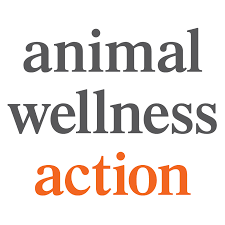Animal Wellness Action Says Tiger in West Houston Provides More Evidence That Congress Must Adopt the Big Cat Public Safety Act With Urgency
 In the latest incident involving an escaped captive big cat, amateur video was released late last night of a tiger roaming a suburban West Houston community, with one individual brandishing a weapon in an apparent attempt to prevent a violent charge or lunge by the animal. A man who claimed to be the owner then was able to coax the animal into his home before a shooting occurred.
In the latest incident involving an escaped captive big cat, amateur video was released late last night of a tiger roaming a suburban West Houston community, with one individual brandishing a weapon in an apparent attempt to prevent a violent charge or lunge by the animal. A man who claimed to be the owner then was able to coax the animal into his home before a shooting occurred.
Texas has no statewide law forbidding private ownership of tigers and other big cats, although many local jurisdictions do have policies forbidding ownership. Yet law enforcement are almost never trained to handle such situations.
“Private citizens and emergency responders should not have to come face to face with a lion or a tiger in a crisis,” said Wayne Pacelle, president of Animal Wellness Action. “These animals belong in the wild or in reputable sanctuaries or zoos and nowhere else. This epidemic of private ownership of these exotic animals must be put to a swift end before more animals die and more people are injured or killed.”
Emergency responders are not equipped to safely handle circumstances where there is an animal escape, a domestic violence dispute, a natural disaster, or some other crisis.
Private citizens acquire tigers or other big cats as cubs, but soon realize they are unable to handle a 300-pound carnivore. When private citizens and roadside zoos dump tigers and lions into the exotic animal trade, they become an unfunded liability for animal welfare sanctuaries and zoos the next 20 years. Reputable zoos and animal welfare groups take in these big cats to help them, but it comes at a great and unanticipated expense. It may cost as much as a million dollars to house, feed, and care for a tiger for 20 years.
“Texas has had a cascade of dangerous incidents, including recently in San Antonio,” added Mr. Pacelle, who worked to pass the Captive Wildlife Safety Act in Congress in 2003. That legislation has not been properly implemented and enforced and had a technical problem that requires new legislation to amend it. The Big Cat Public Safety Act, H.R. 263 and S. 1210, would correct that problem, ban any interstate transport of big cats for the pet trade, and outlaw commercial cub petting operations, like the own featured in the Netflix sensation “Tiger King.”
The tigers and lions bred for the pet trade or as roadside attractions do not have good lives. These animals, native to Africa and Asia, typically endure substandard conditions and life almost never turns out well for them.
Texas passed a law to address captive big cats, but the law requires counties to take additional legislative action to address the problem. U.S. Rep. Lizzie Fletcher (D-TX-07), whose district lies within the Houston area as well as Reps. Marc Veasey (D-TX-33), Sylvia Garcia (D-TX-29), Colin Allred (D-TX-32), Michael McCaul (R-TX-10), Veronica Escobar (D-TX-16), and Lance Gooden (R-TX-05) are current cosponsors of the Big Cat Public Safety Act but Republican U.S. Sens. John Cornyn and Ted Cruz have yet to cosponsor the Senate companion bill despite the endorsement from the National Sherriff’s Association, Fraternal Order of Police, and numerous other law enforcement officials across the state.
Animal Wellness Action (Action) is a Washington, D.C.-based 501(c)(4) organization with a mission of helping animals by promoting legal standards forbidding cruelty. We champion causes that alleviate the suffering of companion animals, farm animals, and wildlife. We advocate for policies to stop dogfighting and cockfighting and other forms of malicious cruelty and to confront factory farming and other systemic forms of animal exploitation. To prevent cruelty, we promote enacting good public policies and we work to enforce those policies. To enact good laws, we must elect good lawmakers, and that’s why we remind voters which candidates care about our issues and which ones don’t. We believe helping animals helps us all.
The Animal Wellness Foundation (Foundation) is a Los Angeles-based private charitable organization with a mission of helping animals by making veterinary care available to everyone with a pet, regardless of economic ability. We organize rescue efforts and medical services for dogs and cats in need and help homeless pets find a loving caregiver. We are advocates for getting veterinarians to the front lines of the animal welfare movement; promoting responsible pet ownership; and vaccinating animals against infectious diseases such as distemper. We also support policies that prevent animal cruelty and that alleviate suffering. We believe helping animals helps us all.
The Center for a Humane Economy (“the Center”) is a non-profit organization that focuses on influencing the conduct of corporations to forge a humane economic order. The first organization of its kind in the animal protection movement, the Center encourages businesses to honor their social responsibilities in a culture where consumers, investors, and other key stakeholders abhor cruelty and the degradation of the environment and embrace innovation as a means of eliminating both.

